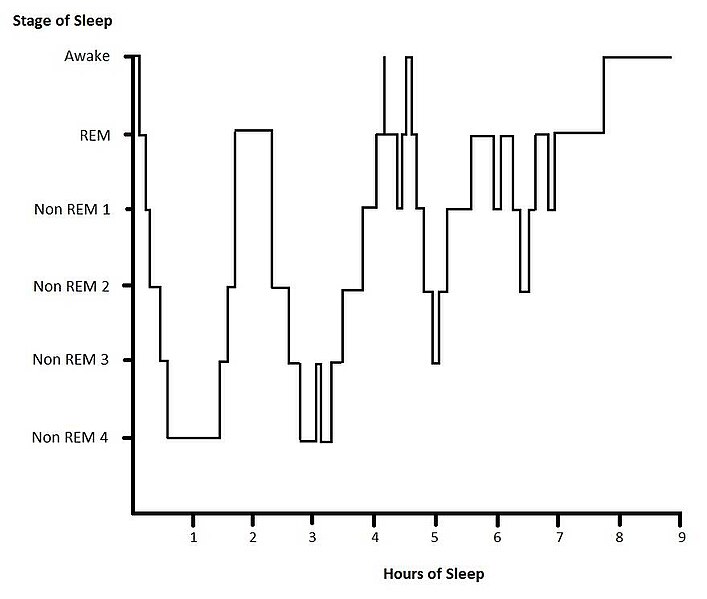Health and Wellness is a new term that most look at with a decent amount of chagrin. Instagram moms peddle herbs and teas on their pages and extoll the virtues of ‘self-care.’ It seems like a lot of ‘basic-white-chick’ stuff and New-Age gobbledygook. Most of the time, it is; yoni crystals, butthole sunning, and other practices that use words like ‘uplifting,’ and ‘energizing.’ Unfortunately, the “wellness” culture has been coopted by these people, and its merits have been disregarded by almost everyone who actually works for their paycheck.
Steve works at a factory that produces camping trailers. His work day begins at 3:30 am when he is violently awoken by an alarm on his phone. The first thing he does is move into the kitchen to grab a cup of coffee, outside for a quick cigarette, into the bathroom for his morning constitutional, then he dresses for work, and by 4:00 am, he is out the door. He grabs a few energy drinks from the gas station, gets to work by 5:00 am, and begins hanging cabinets in trailers. His first break is at 8:00 am, when he smokes a few cigarettes, drinks an energy drink, and then goes back to the production line. At 11:30 am is lunch, where instead of eating, he smokes and relaxes for a half hour. The last two hours of work are grueling, and he usually chugs an entire can of his favorite energy drink. By the time he punches out at 2:00 pm, he is exhausted. When Steve gets home he relaxes until dinner, at 6:00 pm, eats, gets tired, and goes to sleep at 8:00 pm or 9:00 pm. He usually wakes up at midnight and goes back to sleep.
At 3:30, when he wakes up he is exhausted, and the cycle repeats. Coffee, energy drinks, cigarettes, skipping meals because they make him tired, home, relax, dinner, sleep, repeat. Many Americans are on a schedule that is similar to this. They’re always exhausted, always trying to play catch up, mentally fogged, physically drained, mildly depressed, and usually a little overweight.
A positive feedback loop is a cycle of actions that, when repeated, cause the consequences of those actions to be exacerbated each time the cycle is concluded. Herein, the above lifestyle is the cycle, and the increasing lethargy, weight gain, depression, and exhaustion are the consequences. A negative feedback loop balances itself. Oddly enough, these feedback loops can be found in the human body.
The physiological processes of the human body are such that there are different organs, organ systems, and tissues within the body that are made to provide balance. They try to be a negative feedback loop, and their goal is homeostasis; the optimal functioning of the human organism (Libretti & Puckett, 2023). The things we introduce, like caffeine, nicotine, etc., sometimes work against this delicate balancing act the body is meant to provide. Homeostasis, a scientific concept, is wellness and health, and it is something worthy of maintaining.
Wellness has seven or eight pillars, depending on who you ask. They are; Sleep, diet, digestion, exercise, stress (or stress exposure and stress management), hydration, and lymph. When these pillars are maintained, so is health, wellness, or homeostasis, to the degree that the individual can affect them.
Steve isn’t sleeping well. He gets about seven hours of sleep total, because of an interruption. Sleep performs a myriad of functions. There is the glymphatic system that is active during sleep. This system cleans out your nervous system; every thought, movement, and action, both voluntary (moving around) and involuntary (heart beating) requires some sort of neurological activity. That activity, like all other activities in the body, creates waste that must be removed before it contaminates and degrades your body. If you never had a bowel movement, urinated, or sweat, your body would be full of metabolic waste, you’d go septic, and die.
The glymphatic system is a recent discovery, and as stated, it cleans out your nervous system; the spine, nerves, and brain (Jessen et al., 2015). But that occurs only when you sleep, and if you don’t sleep, it doesn’t clean, those metabolic wastes build up and begin to degenerate the nervous tissue. Have you ever been up for over 24 hours and noticed that your hands are shaking you can’t see correctly, and that you don’t think straight? That’s the build-up of waste beginning to take its toll.
The second issue with Steve’s sleep is the interruption. A lot of people wake up a few hours after going to sleep and don’t know why. It is because they are eating too close to their bedtime. When you eat, the parasympathetic nervous system (PNS) increases in tone causing the body to get sleepy and possibly take a nap, the body has to rest so it can break down food and turn it into energy. This is also why Steve skips lunch and breakfast, because those meals make him sleepy. However, doing this too close to bed causes us to get sleep, but only nap. Thus, in the first few hours of sleep, we’re not actually going through the stages of sleep, we’re just napping, resting slightly so the body can make energy. Then, when the body is done converting food into fuel, we wake up, ready to get back into activity. The sleep interruption (Pacheco, 2023).

Once Steve falls back asleep, he actually falls asleep, but he is only getting ~4 hours of actual real sleep, between 1 and 2 REM cycles, where normally people have 3. Which is why he is so tired when he wakes up and goes straight for the coffee. There’s also something to be said about being on your phone just before sleep, as blue light from phone screens keeps the brain awake (Newsome & Singh, 2023). Reducing the amount of screen time one has throughout the day has been linked to being happier, at least in children (Twenge & Campbell, 2018).
In this series, we will go over all of the Pillars of Wellness. Join me soon for Part 2: Diet and Digestion!
Wellness Tips:
- Cut Screen time, especially before sleep.
- Don’t eat 4 hours before sleep.
References:
Jessen, N. A., Finnman Munk, A. S., Lundgaard, I., & Nedergaard, M. (2015, May 7). The Glymphatic system – A beginner’s guide. PubMed Central (PMC). https://www.ncbi.nlm.nih.gov/pmc/articles/PMC4636982/
Libretti, S., & Puckett, Y. (2023, May 1). Physiology, homeostasis – StatPearls – NCBI bookshelf. National Center for Biotechnology Information. https://www.ncbi.nlm.nih.gov/books/NBK559138/
Newsom, R., & Singh, A. (2023, March 17). Blue light: What it is and how it affects sleep. Sleep Foundation. https://www.sleepfoundation.org/bedroom-environment/blue-light
Pacheco, D. (2023, March 24). Is it bad to eat before bed? Sleep Foundation. https://www.sleepfoundation.org/nutrition/is-it-bad-to-eat-before-bed
Twenge, J., & Campbell, W. K. (2018, October 18). Associations between screen time and lower psychological well-being among children and adolescents: Evidence from a population-based study. PubMed Central (PMC). https://www.ncbi.nlm.nih.gov/pmc/articles/PMC6214874/
The information provided in this article is for educational and informational purposes only and is not intended as medical advice. It is not a substitute for professional medical advice, diagnosis, or treatment. Always seek the advice of your physician or other qualified health provider with any questions you may have regarding a medical condition. Never disregard professional medical advice or delay in seeking it because of something you have read on The Real Republic.
The opinions expressed in this article are solely those of the author and do not necessarily reflect the views or opinions of The Real Republic LLC, realrepublic.com, or any of its affiliates. While our team strives to ensure the accuracy and reliability of the information provided, The Real Republic cannot guarantee the completeness, suitability, or validity of any information on this site or found by following any link. The Real Republic will not be liable for any errors or omissions in this information nor for the availability of this information. The Real Republic will not be liable for any losses, injuries, or damages from the display or use of this information.















